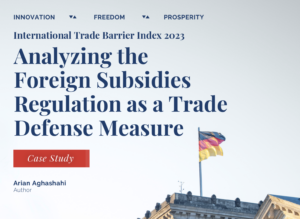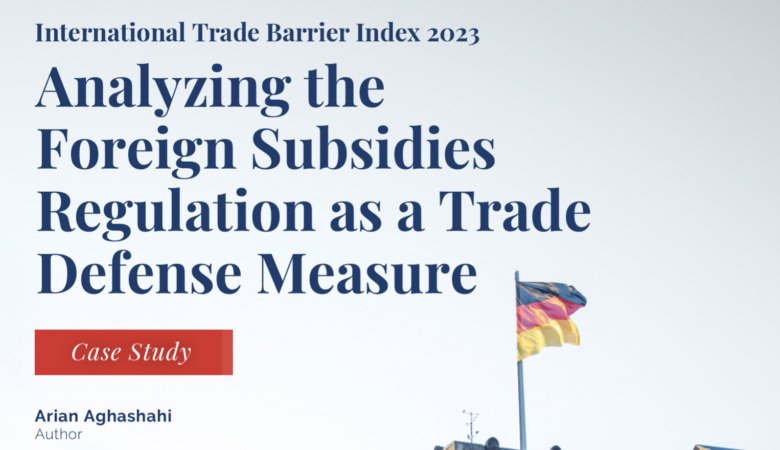Analyzing The Foreign Subsides Regulation As A Trade Defense Measure. Interview With Arian Aghashahi.
1. Your paragraph highlights the broad powers granted to the European Commission, including the ability to demand access to financial data and proprietary information, dissolve concentrations, block mergers, restrict market access, or impose fines. How might these extensive powers impact businesses and trade dynamics, and what are the potential unintended consequences explored in the case study?
1. Answer: The broad powers granted to the European Commission, as highlighted in the article, could significantly influence business operations and trade dynamics. Businesses may face heightened scrutiny and compliance requirements,particularly in financial transparency and proprietary information. These extensivepowers might lead to strategic shifts in mergers and market entries, impactingglobal trade patterns. However, potential unintended consequences, as explored inthe case study, include retaliatory measures from affected countries, increasedoperational costs for EU companies, and strained international trade relations.
2. What specific challenges or shortcomings in the previous dispute resolution system at the World Trade Organization led the European Union to seek unilateral trade defensive measures, such as the Foreign Subsidies Regulation, to retaliate against and redress those tariffs?
2. Answer: The European Union’s move towards unilateral trade defensive measures, including the Foreign Subsidies Regulation, stems from challenges in the World Trade Organization’s (WTO) dispute resolution system. The previous system faced criticism for its inefficiency and inability to address certain trade distortions effectively. Key issues included prolonged dispute resolution times, political impediments in appointing judges, and limited scope in addressing non-tariff barriers and subsidies. These shortcomings necessitated the EU’s adoption of more direct and immediate measures to protect its market from unfair trade practices.
3. Regarding the Foreign Subsidies Regulation, how does this measure work, and the scope of its application? How does it empower the European Commission to investigate and address potential distortions in the EU market caused by foreign subsidies?
3. Answer: The Foreign Subsidies Regulation empowers the European Commission to investigate and address distortions in the EU market caused by foreign subsidies. It applies broadly across economic sectors, including strategic areas. TheCommission can initiate investigations based on evidence or reports of distortionsdue to foreign subsidies. Upon finding adverse impacts, the Commission can takecorrective actions like dissolving concentrations, blocking mergers, restrictingmarket access, or imposing fines. This regulation fills gaps not covered by existingtrade and State aid rules, ensuring fair competition within the EU market.
4. Your paragraph mentions that the Foreign Subsidies Regulation allows the European Commission to dissolve concentrations, block mergers, restrict market access, or impose fines if an adverse determination is reached. Can you discuss potential concerns or unintended consequences associated with empowering the Commission with such broad authority to address foreign subsidies unilaterally?
4. Answer: The broad authority granted to the European Commission to address
foreign subsidies could raise several concerns. While these powers aim to protectthe EU market, they might lead to significant implications for global trade dynamicsand diplomatic relations. Potential unintended consequences include retaliatoryactions from affected countries, leading to trade wars, and increased complianceand operational costs for businesses. Additionally, there’s a risk of these powersbeing perceived as protectionist, potentially affecting the EU’s standing in globaltrade negotiations and its relationships with key trading partners.
Personal statement by the author:
In the context of current geopolitical challenges and the question of forming a Western trading block, the broad authority granted to the European Commission under the Foreign Subsidies Regulation could be seen as a strategic tool. Such a regulation could potentially bolster the formation of a cohesive Western trading bloc, providing a unified approach to address foreign subsidies and maintain fair competition. However, it is essential that this regulation remains generally compliant with WTO rules to ensure it doesn’t contravene international trade agreements and maintains the principles of fair and open trade.

